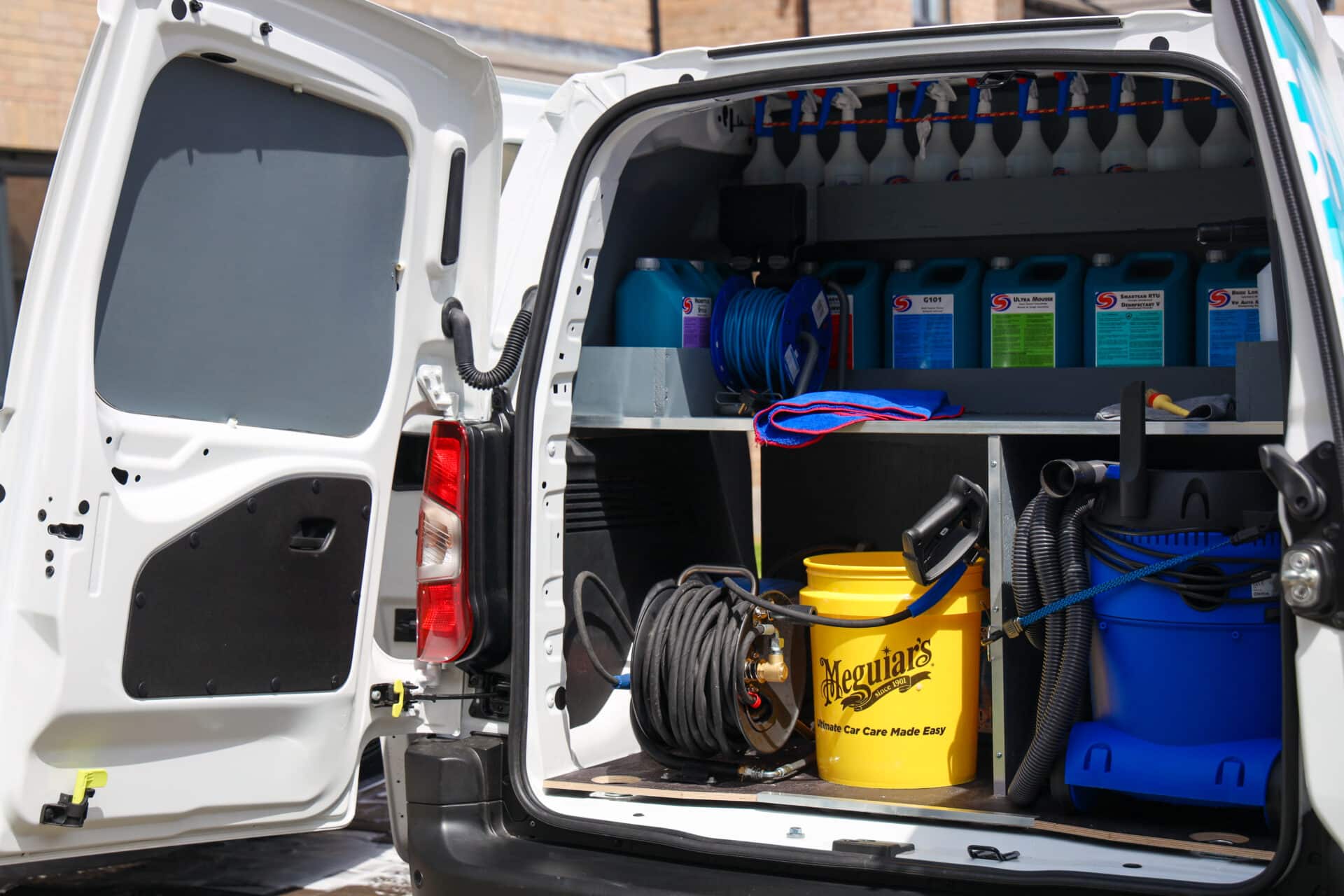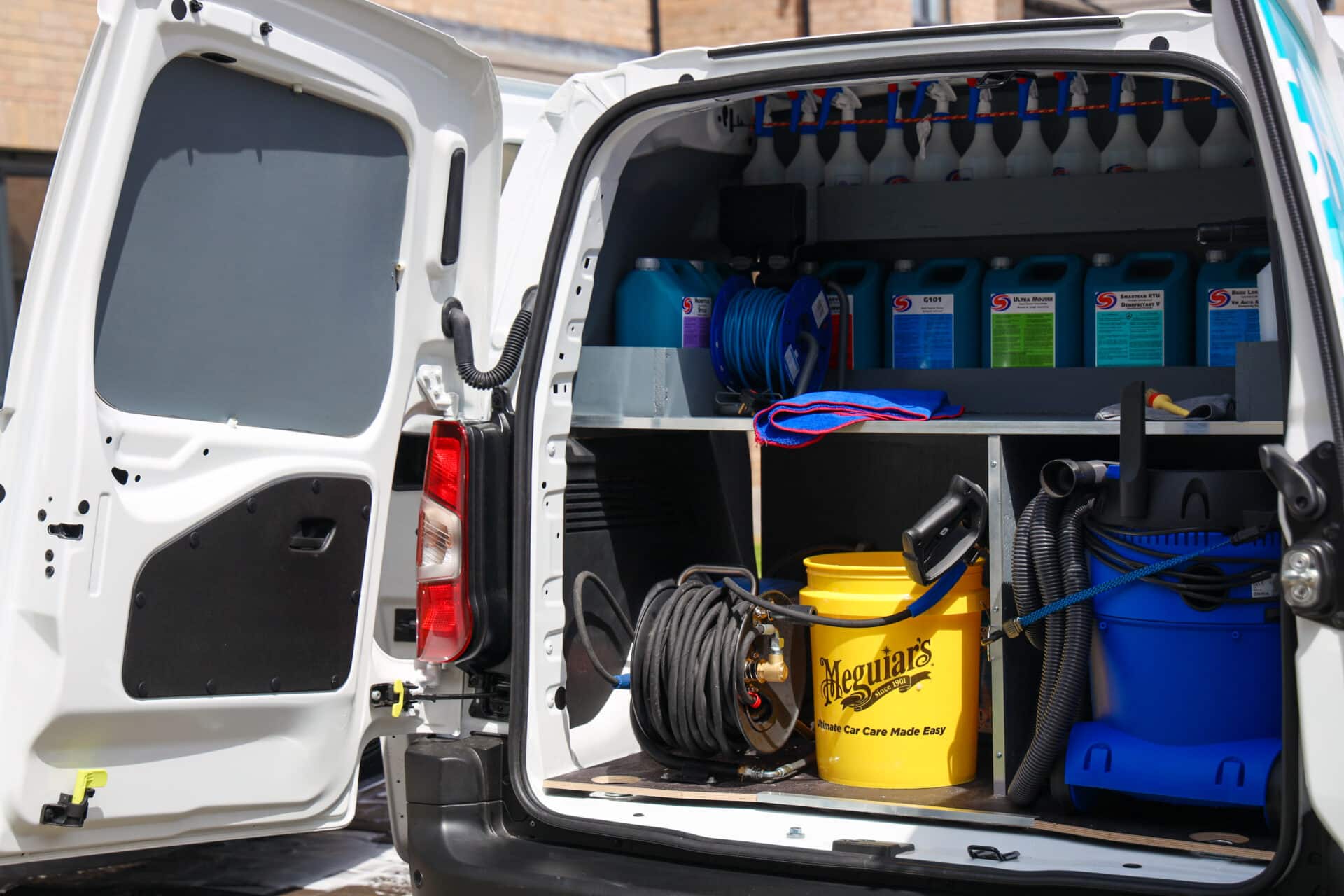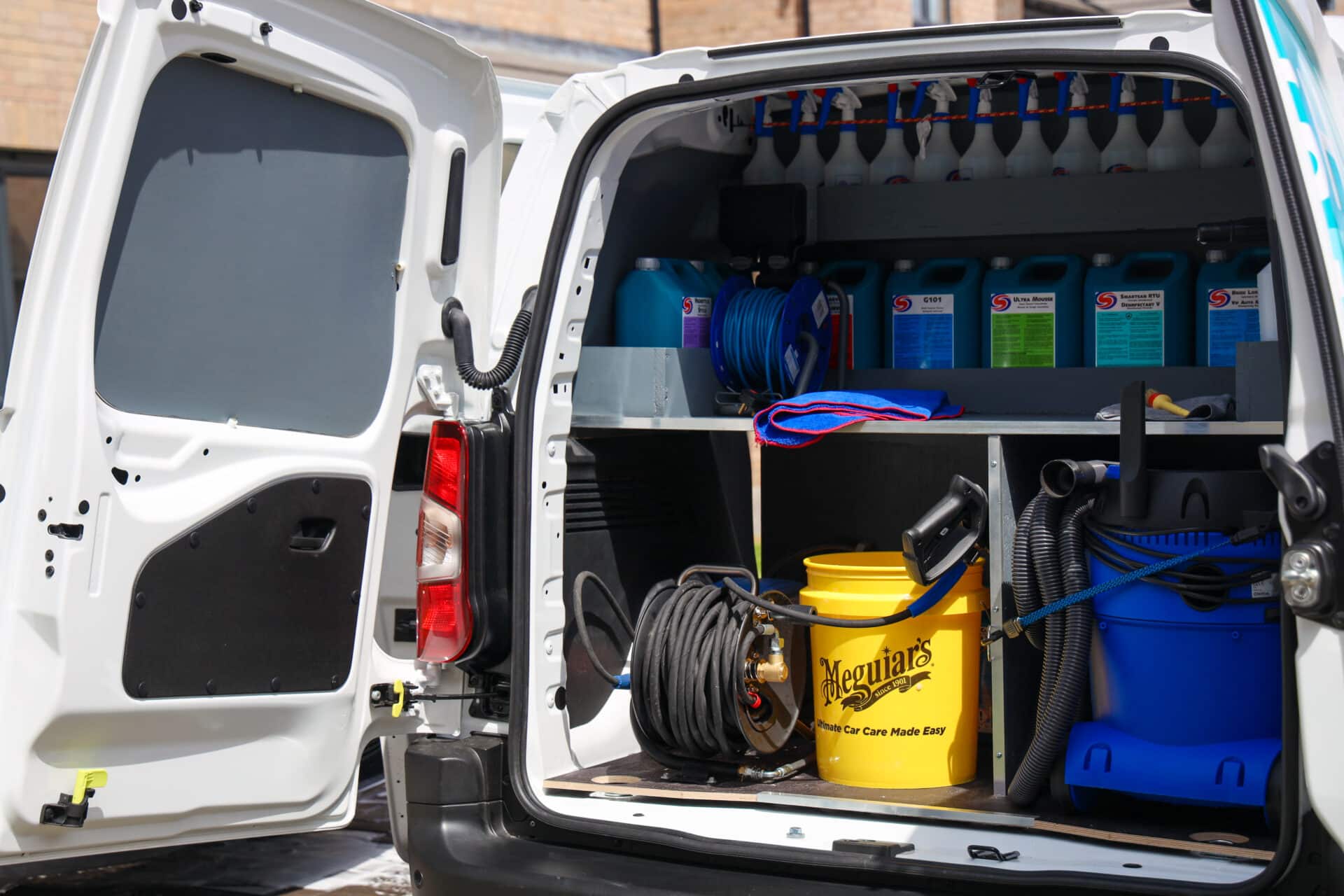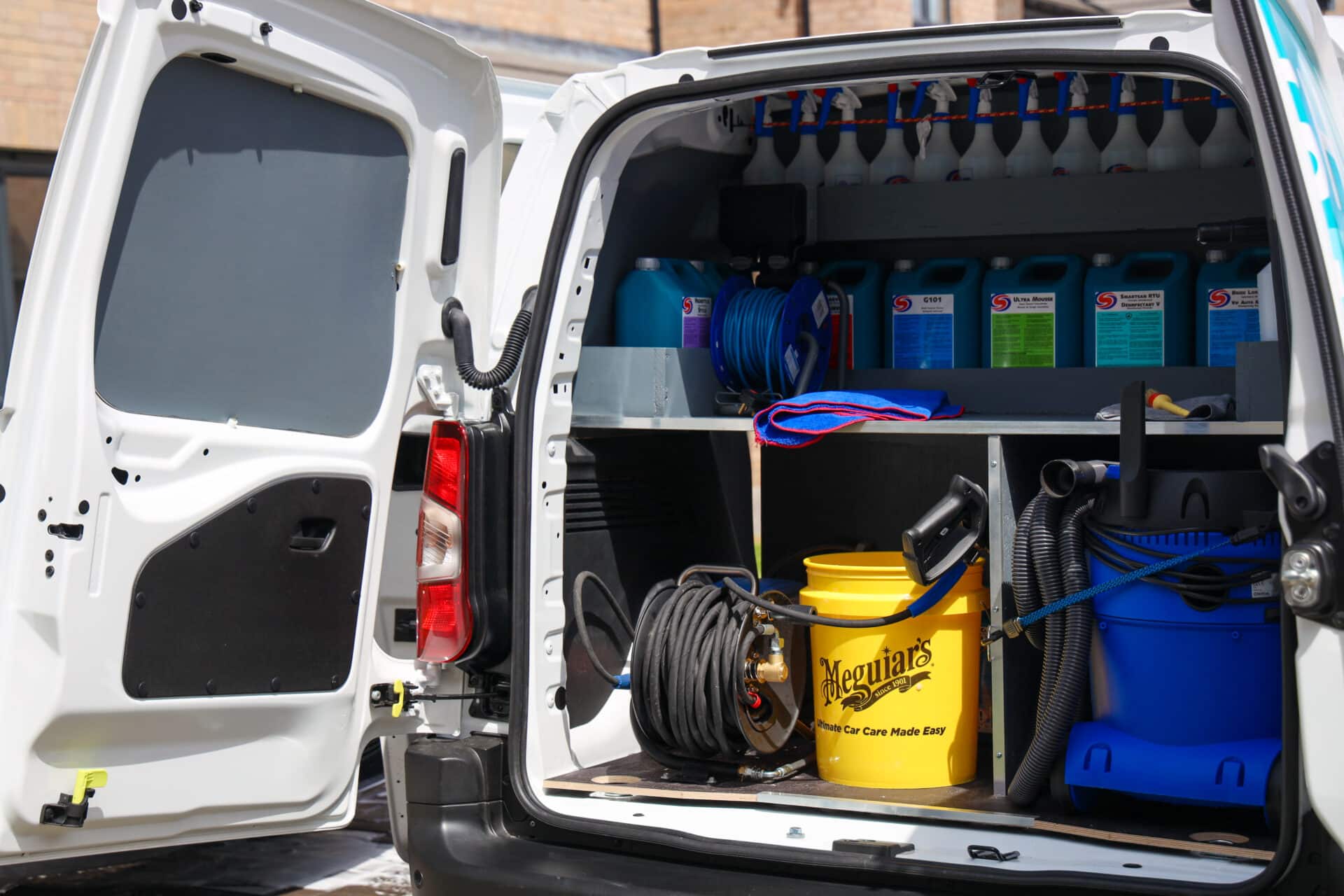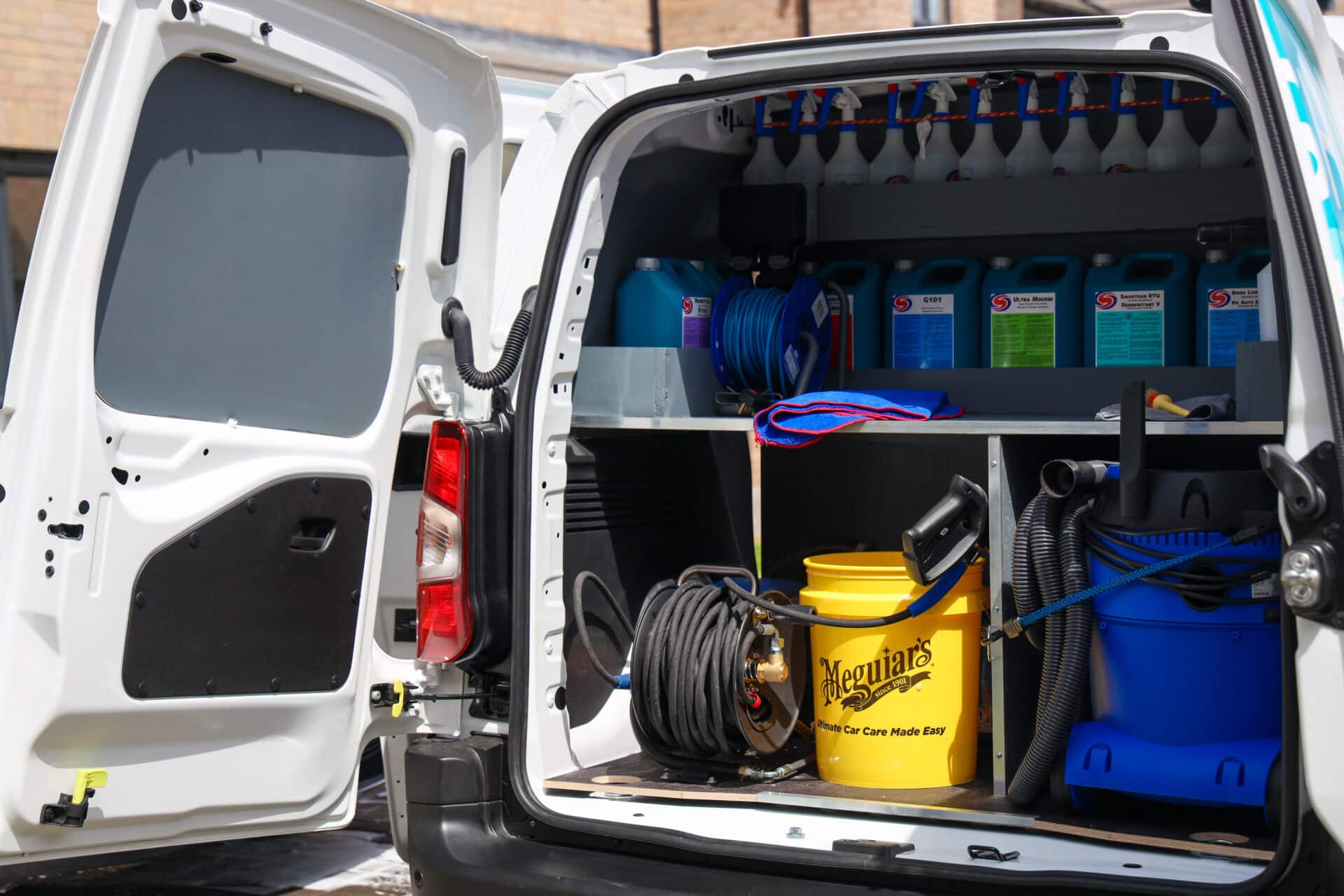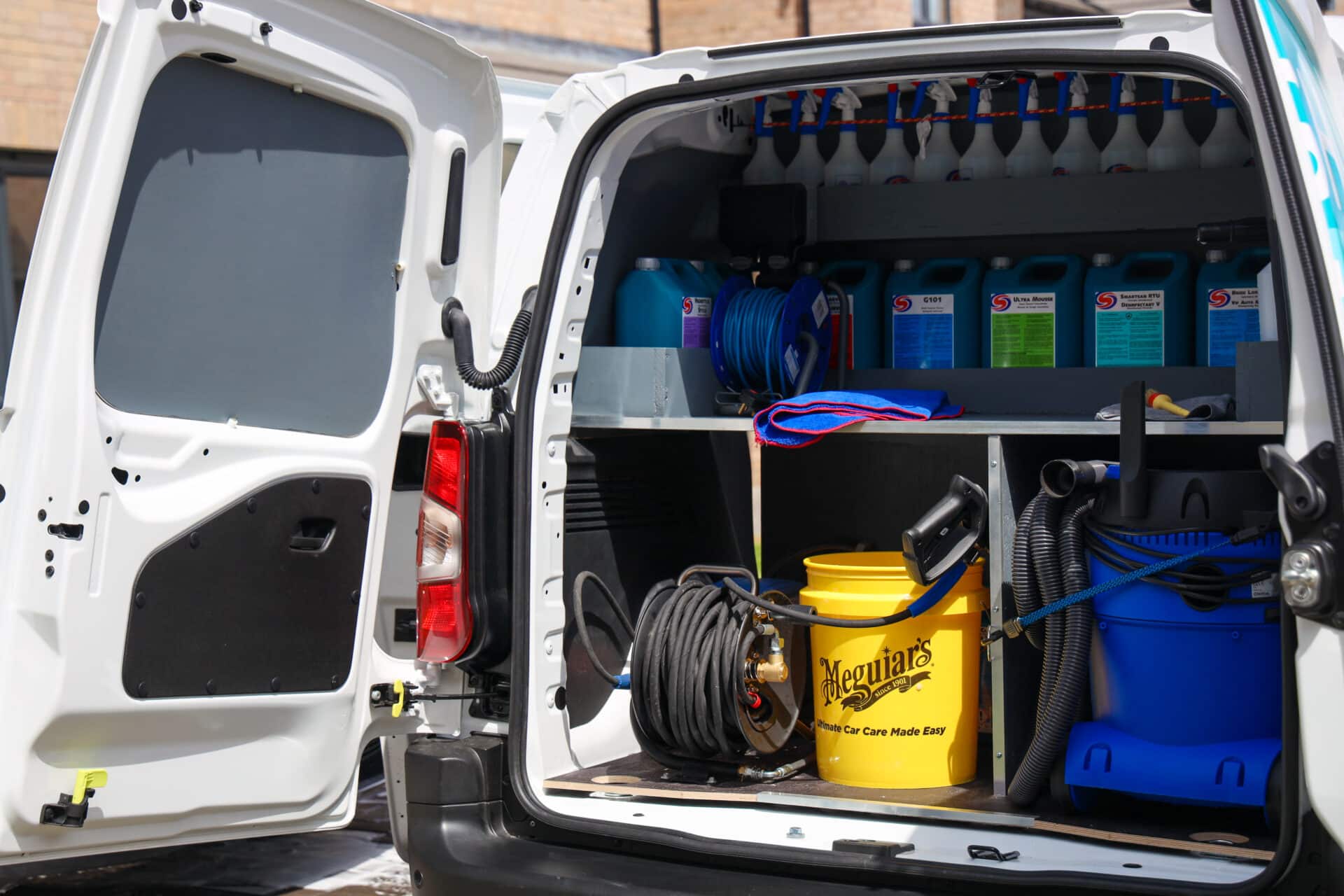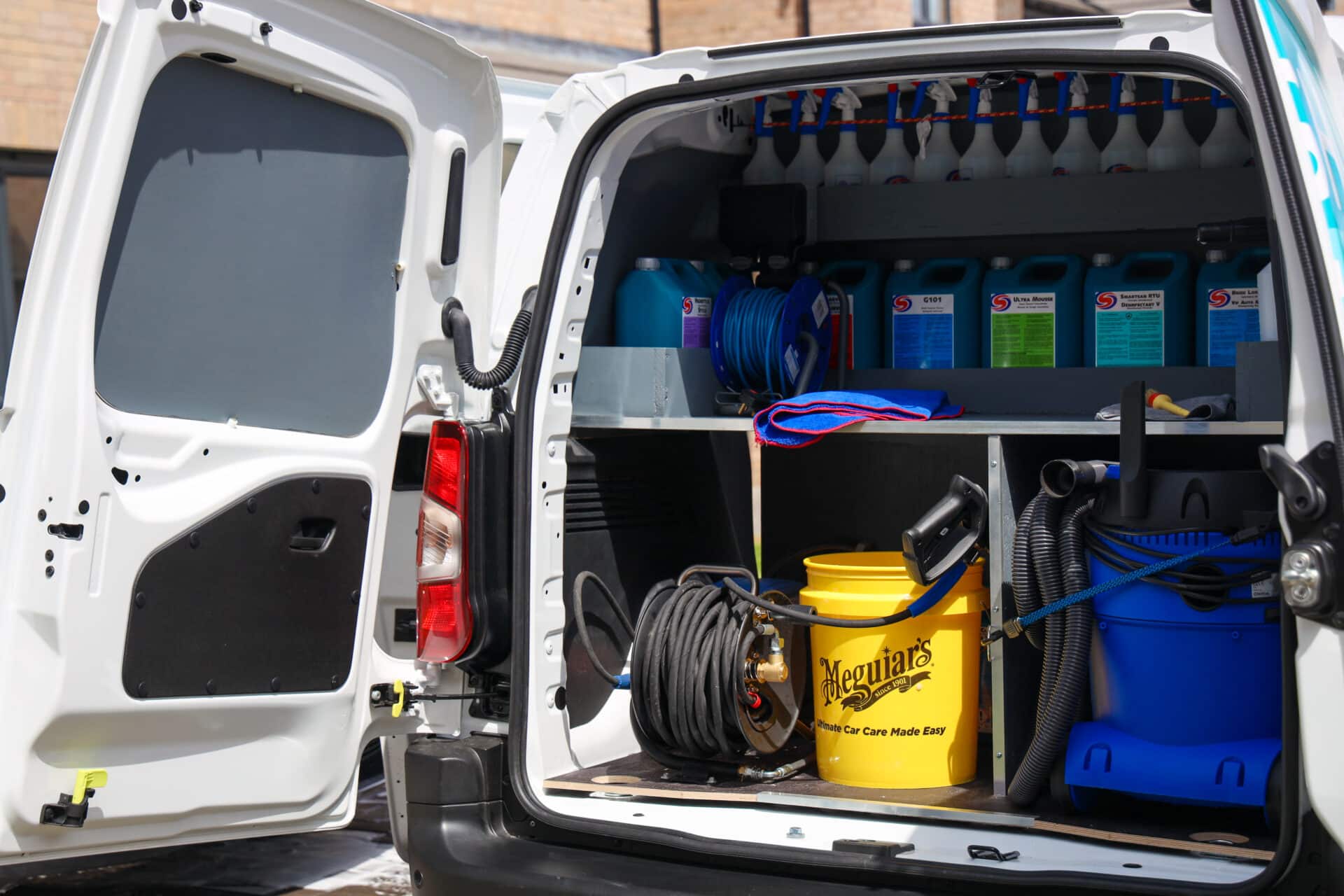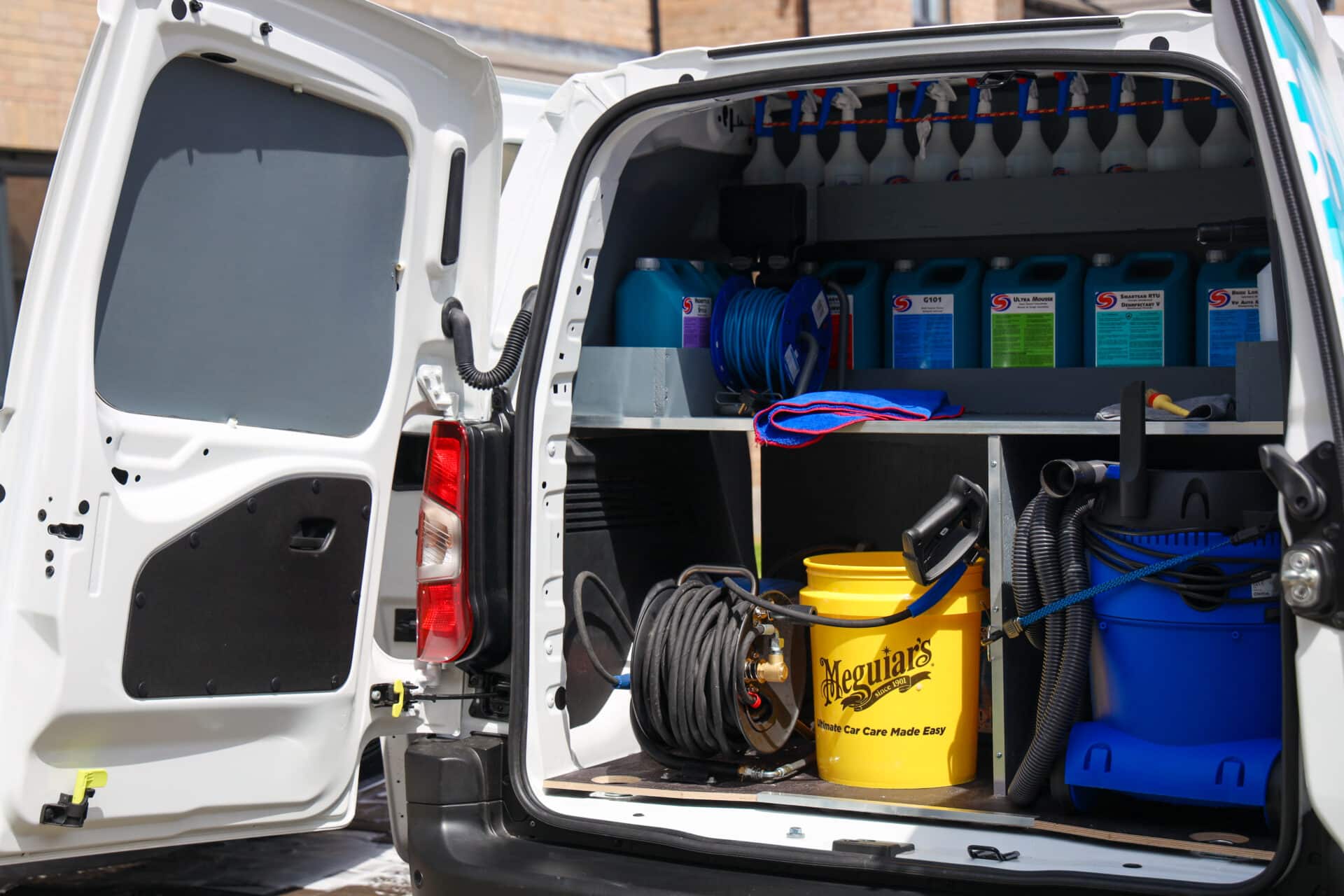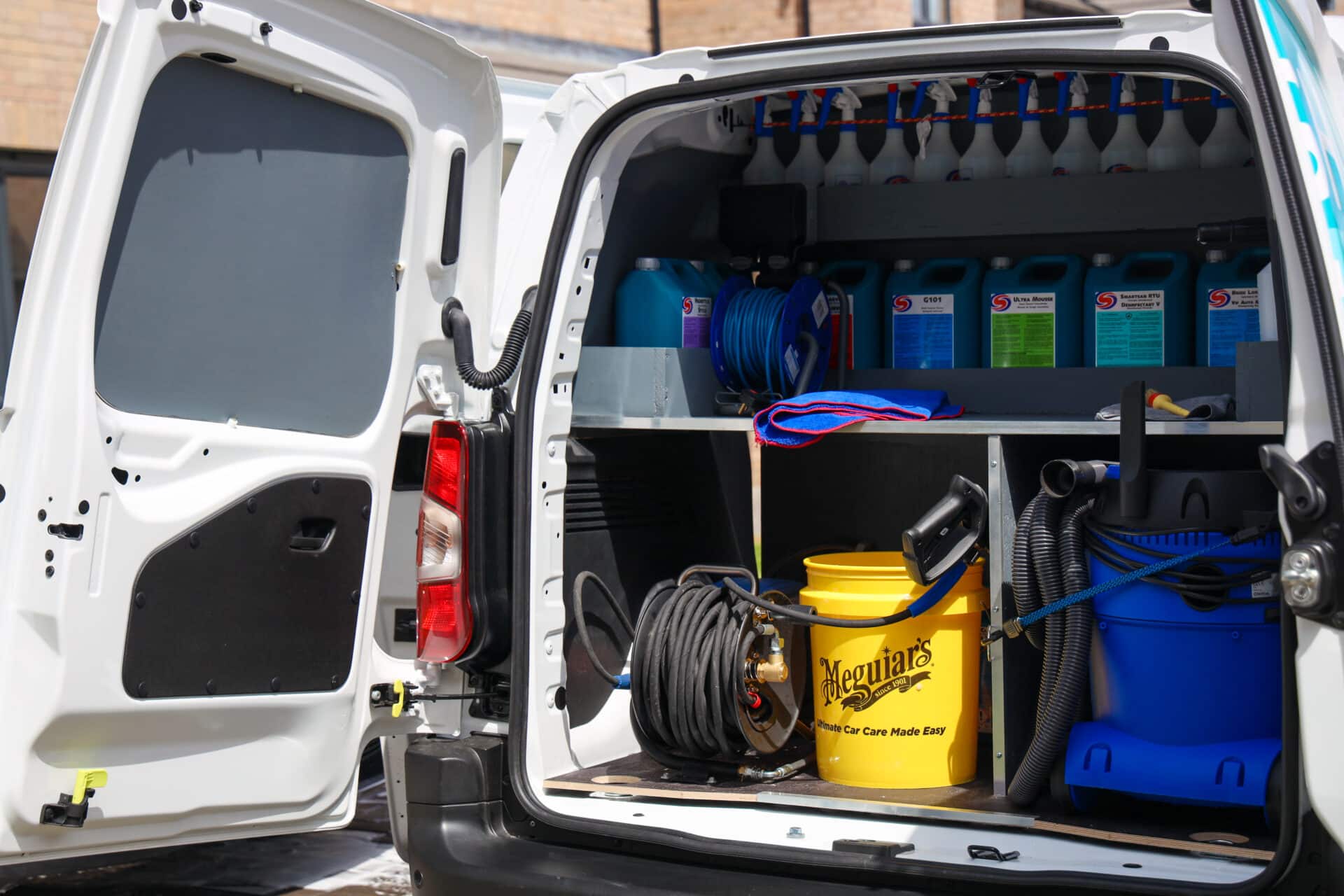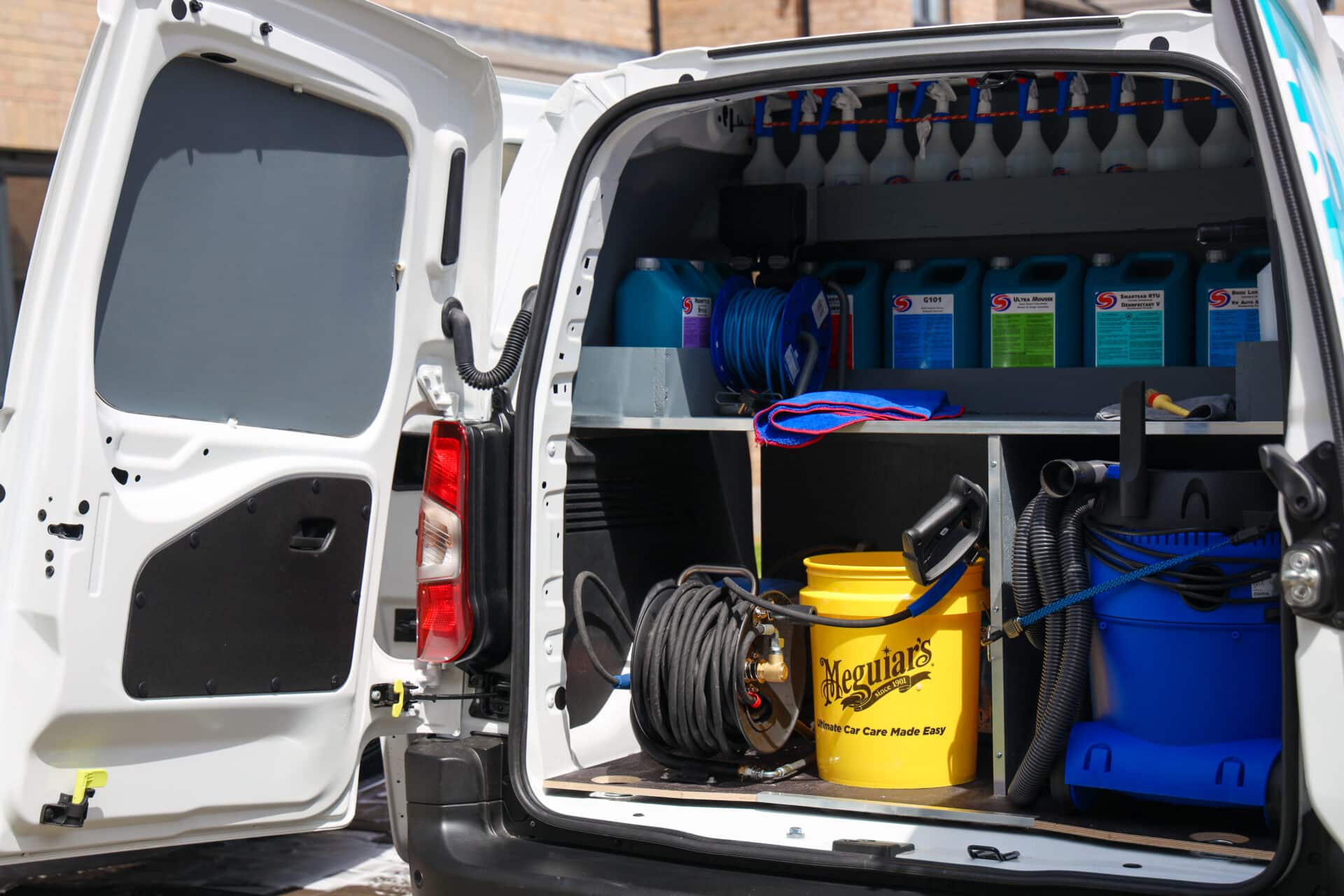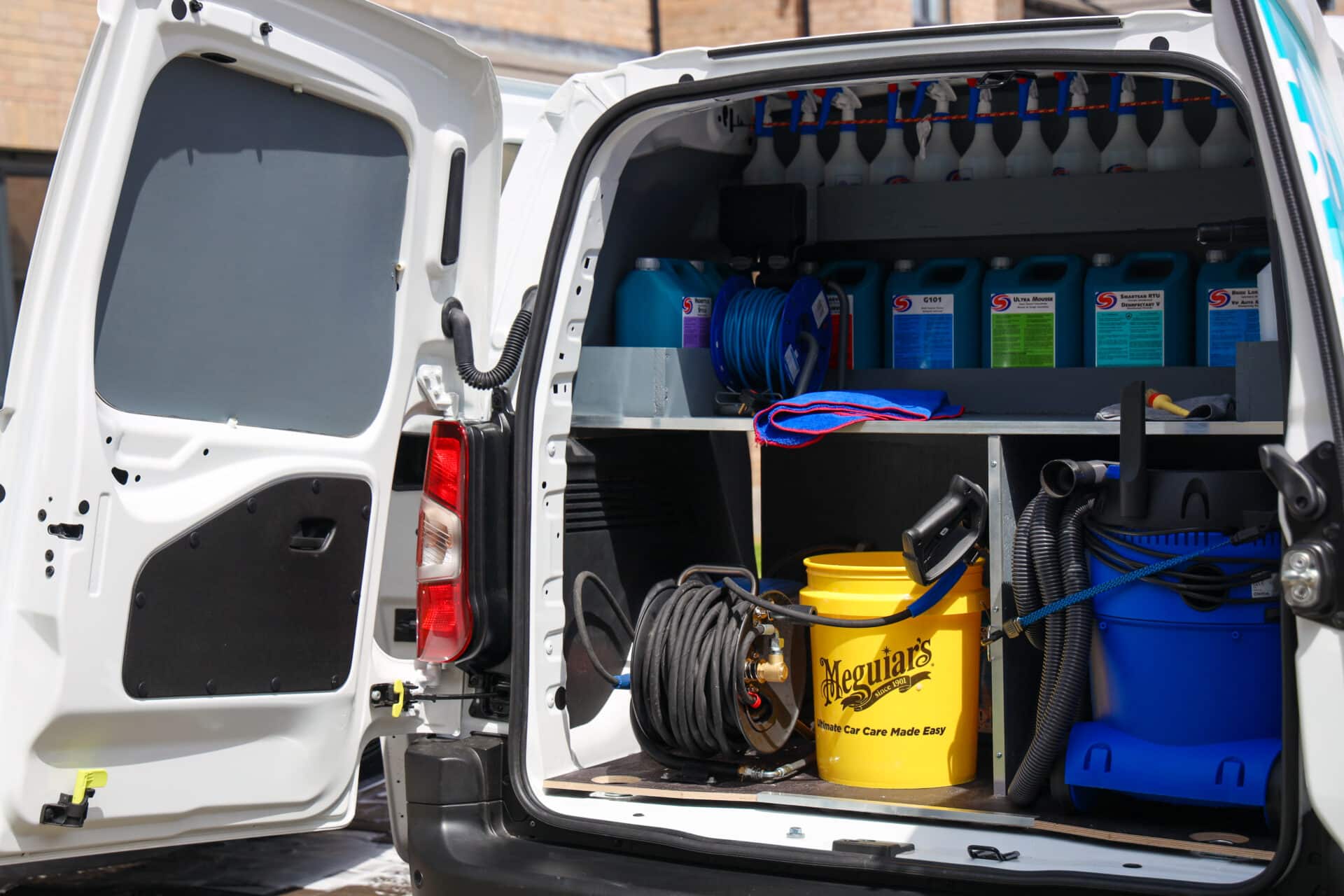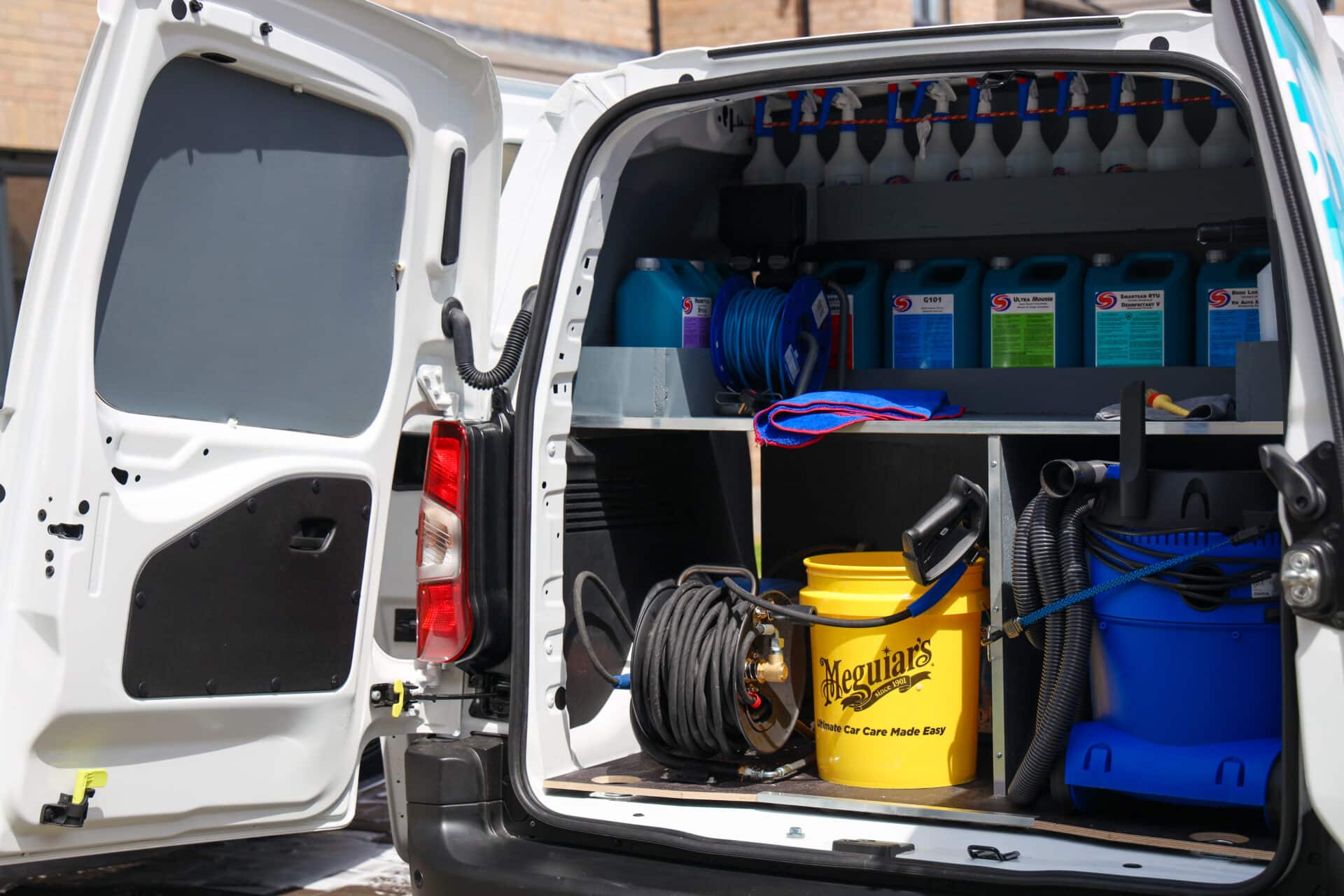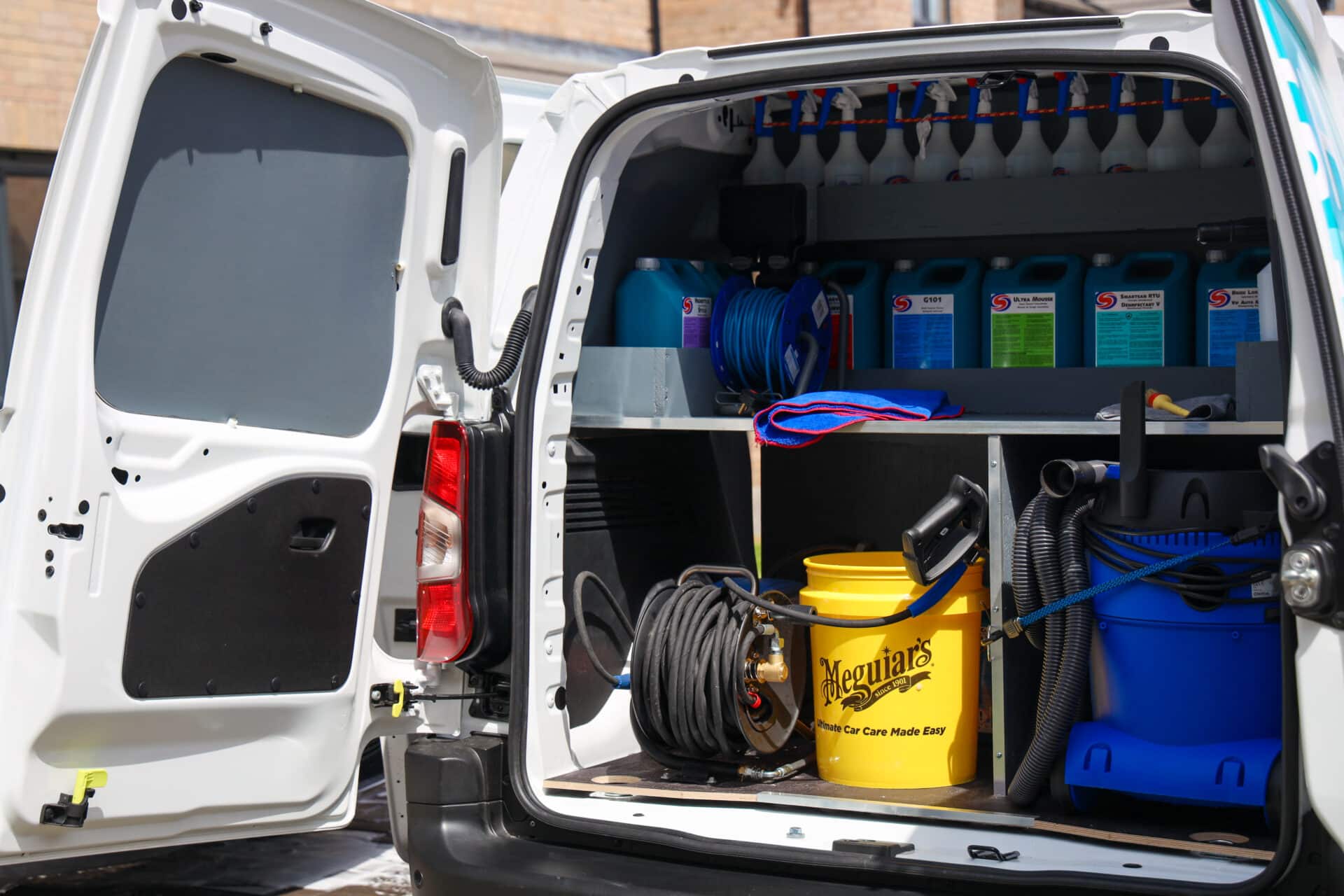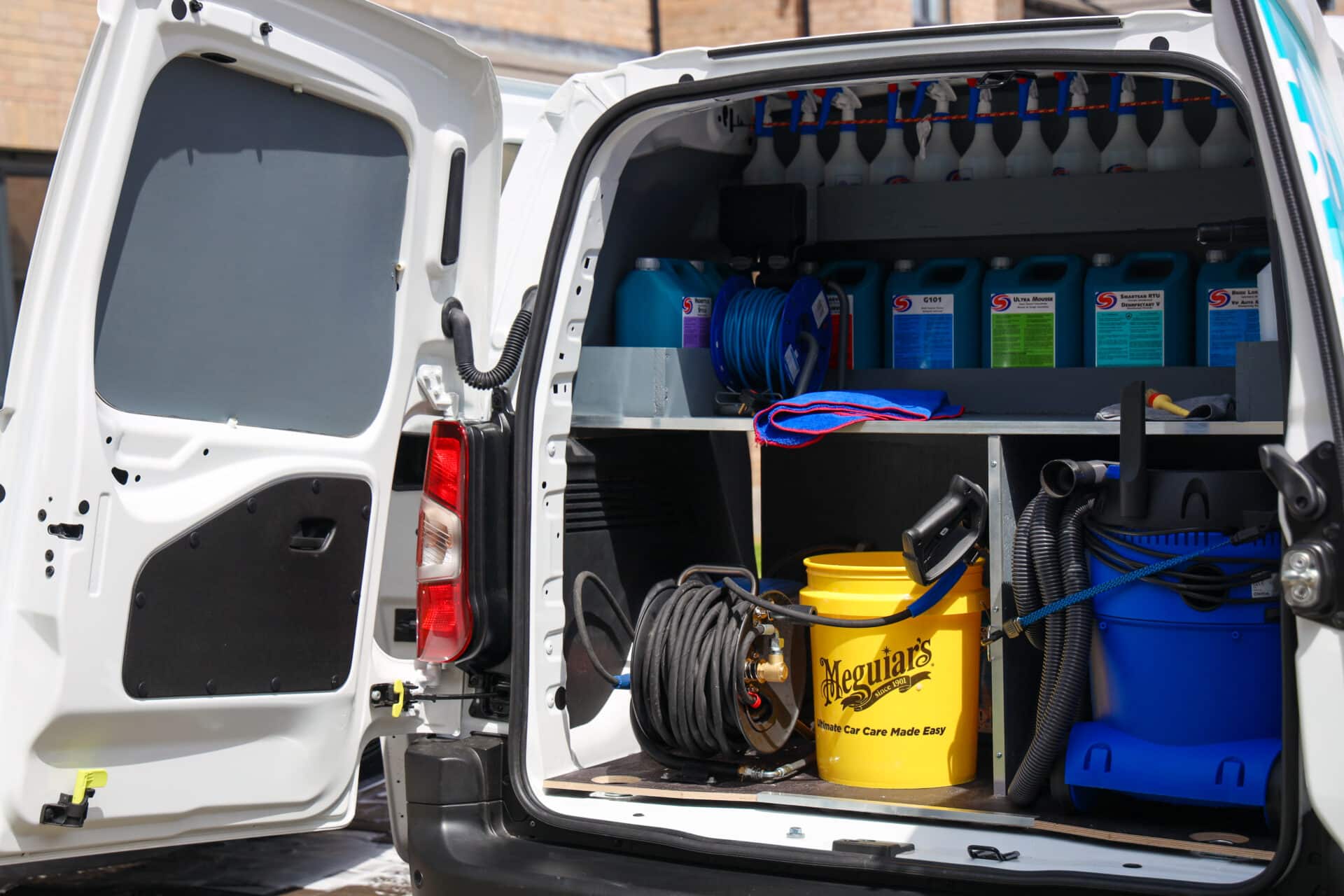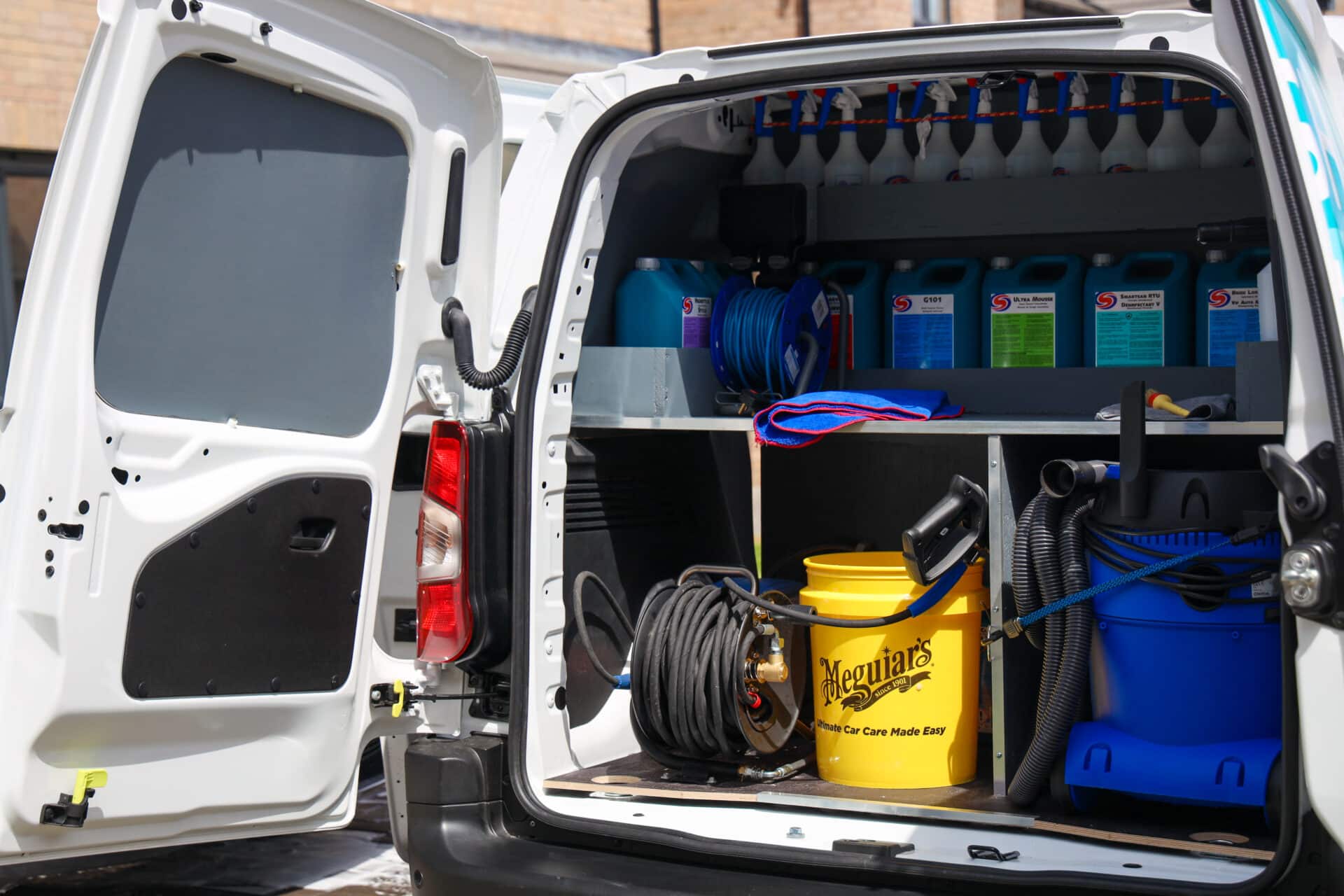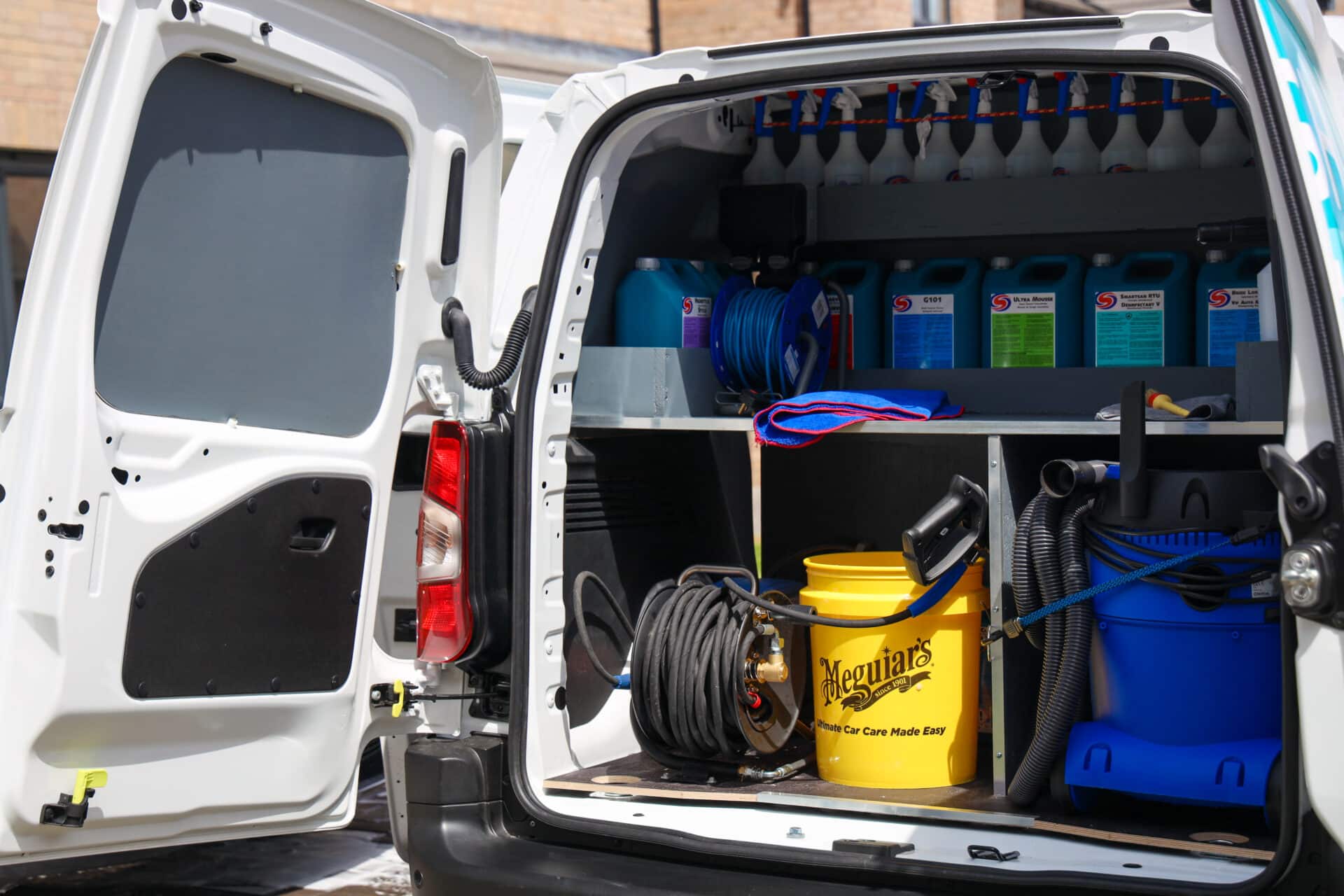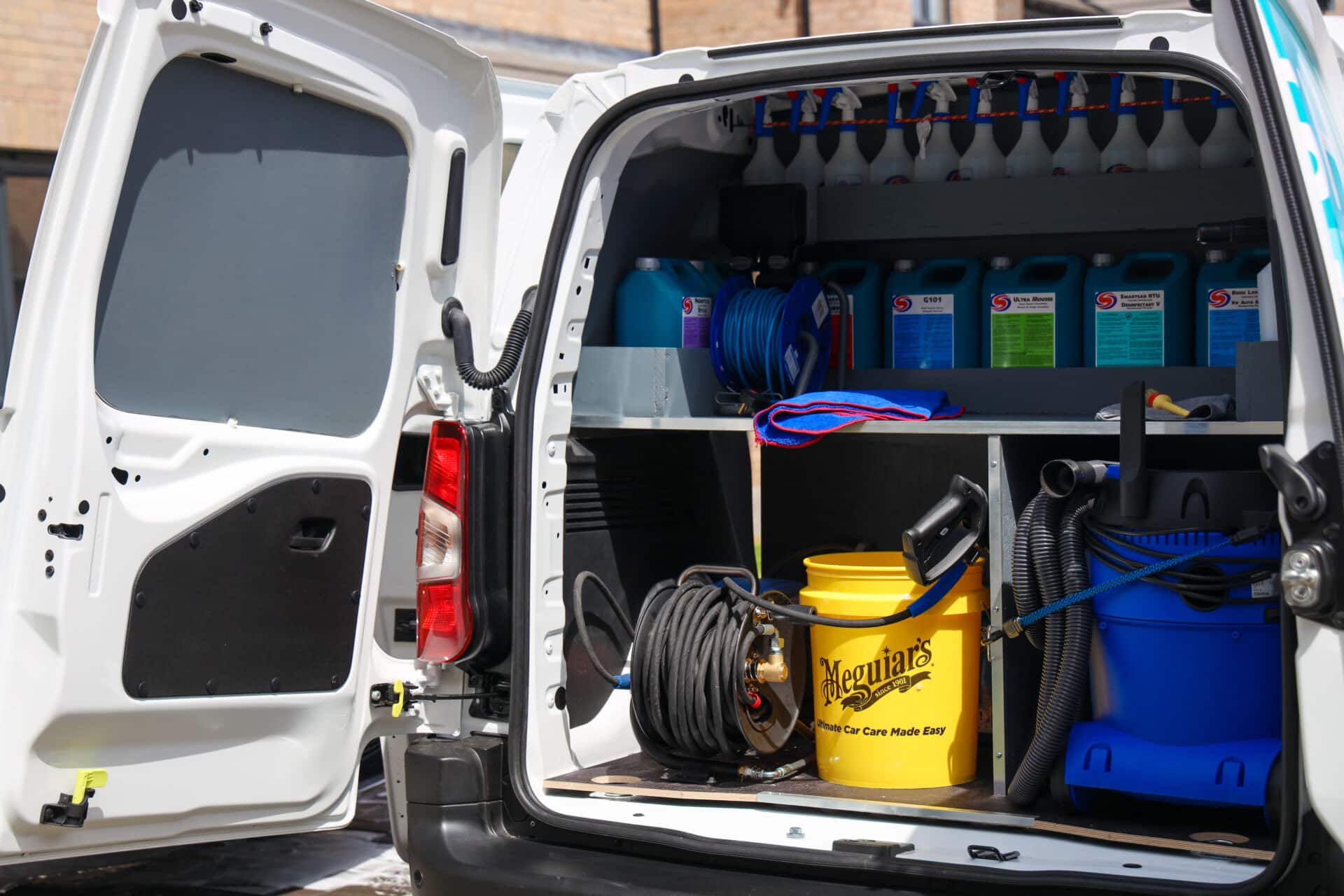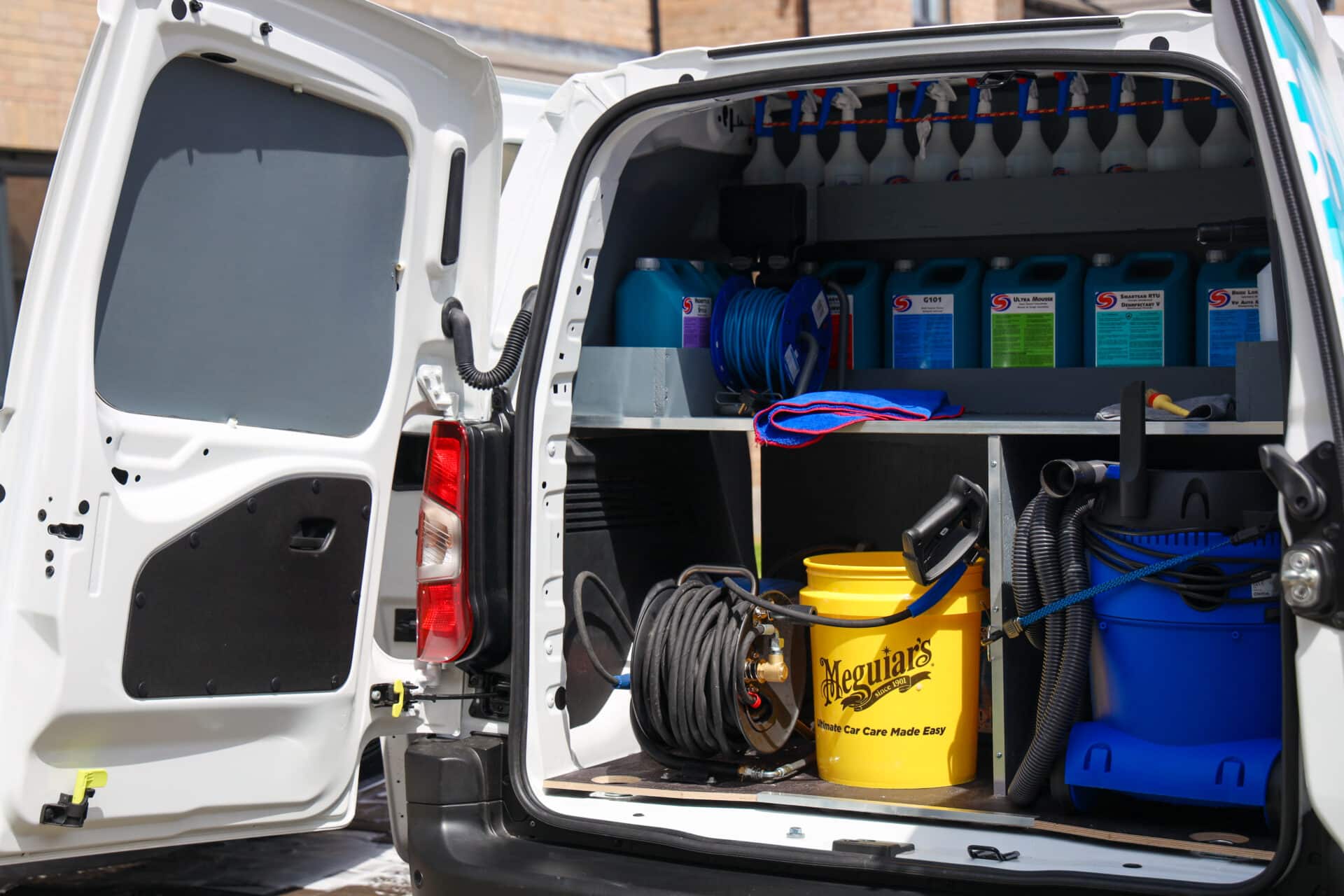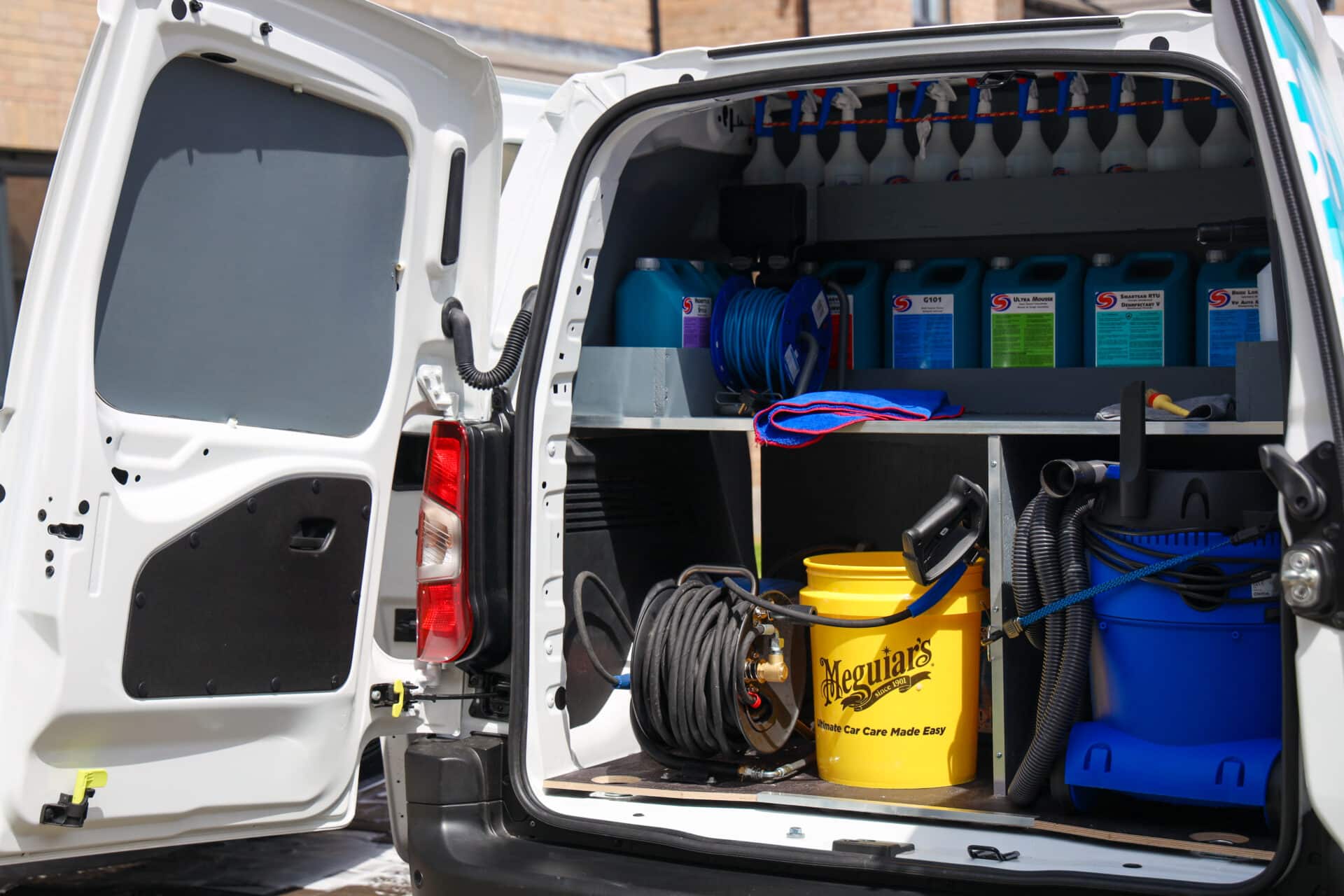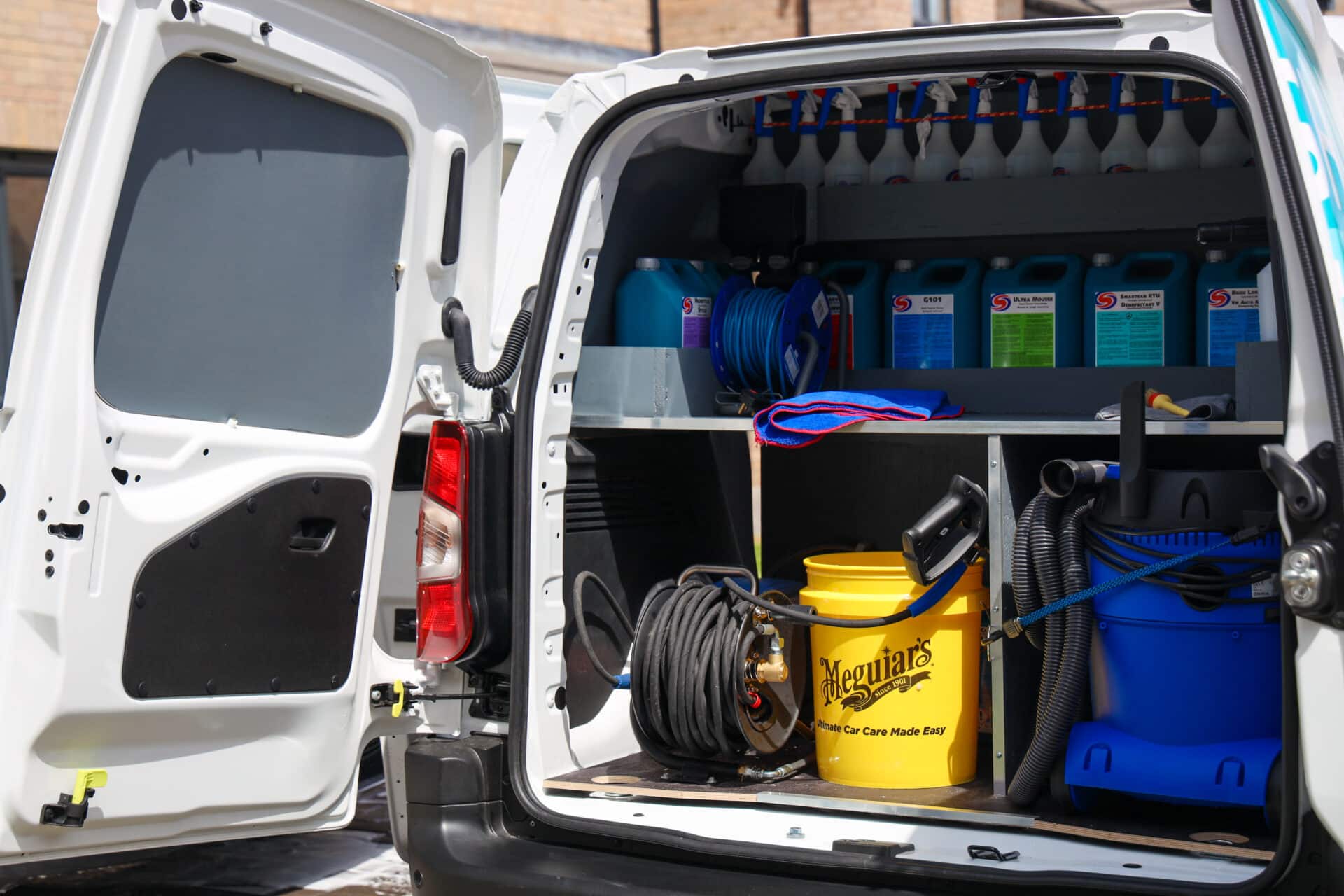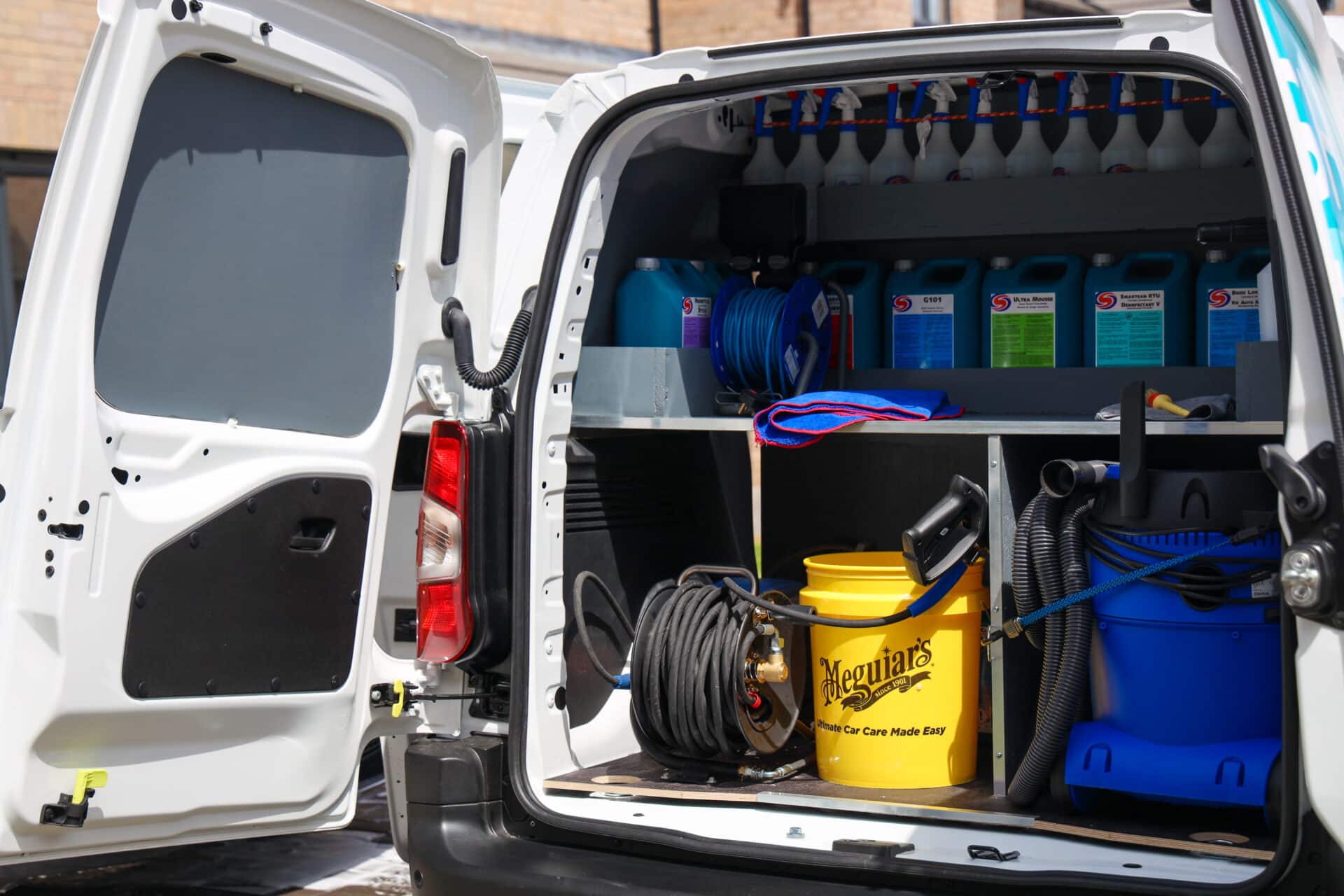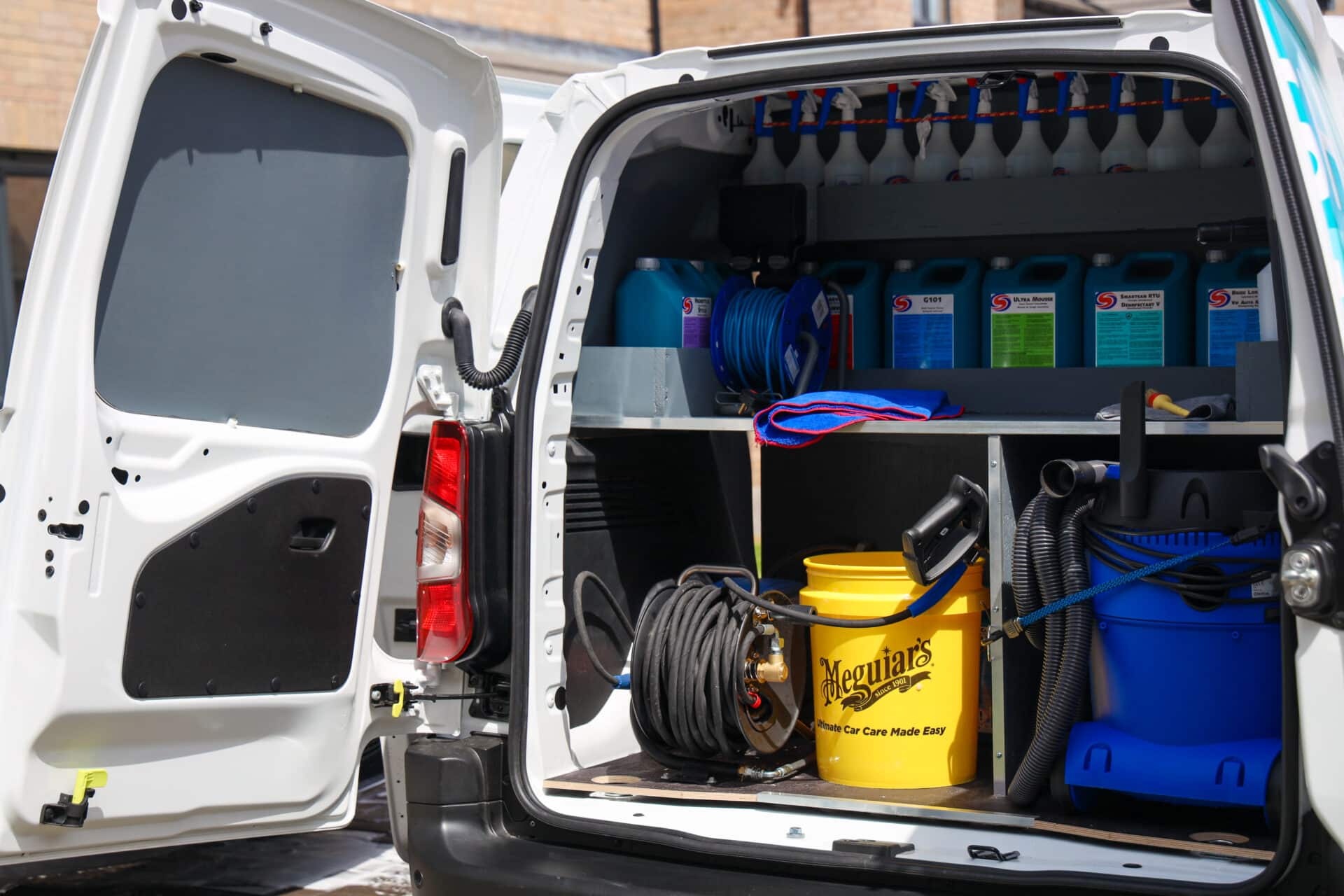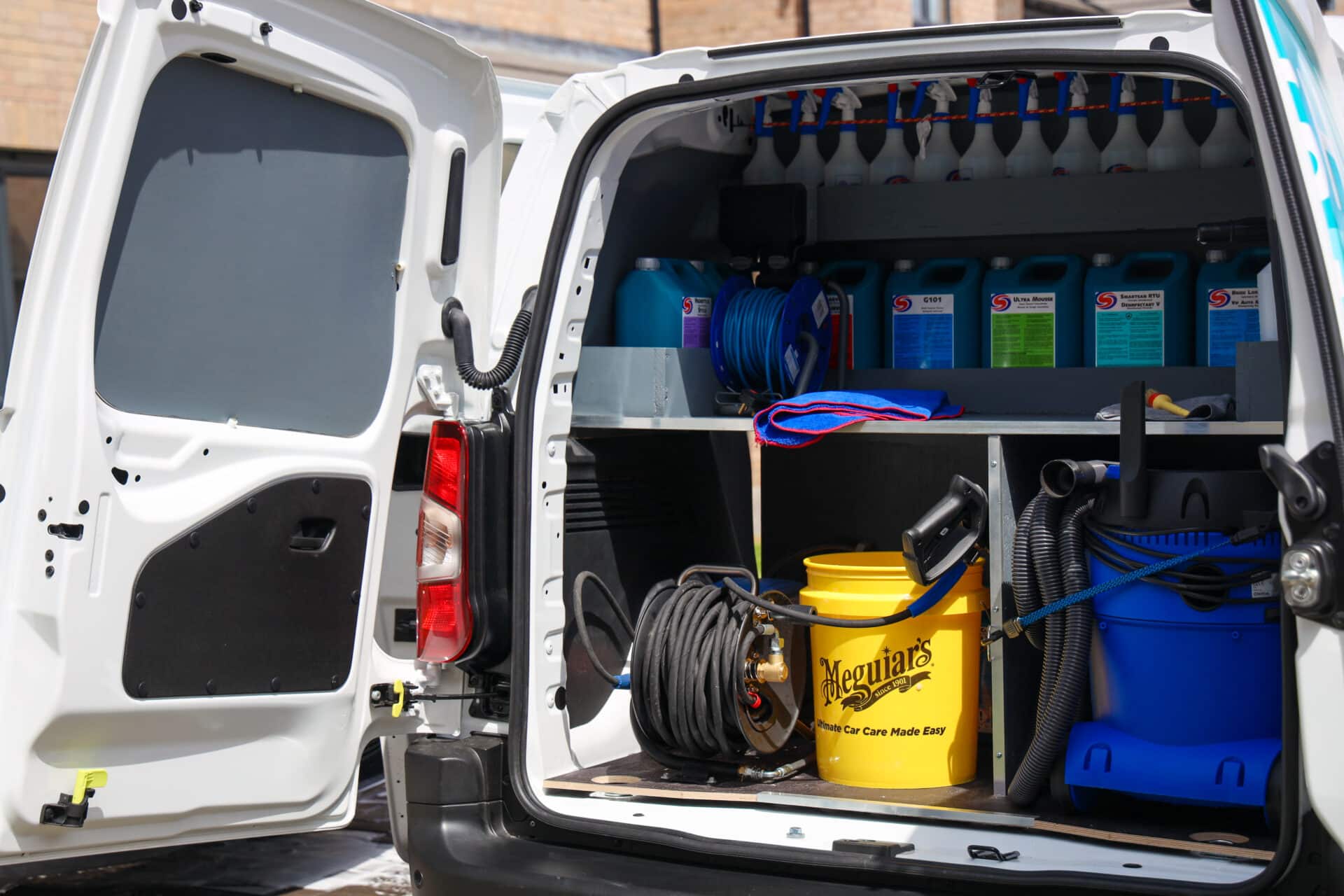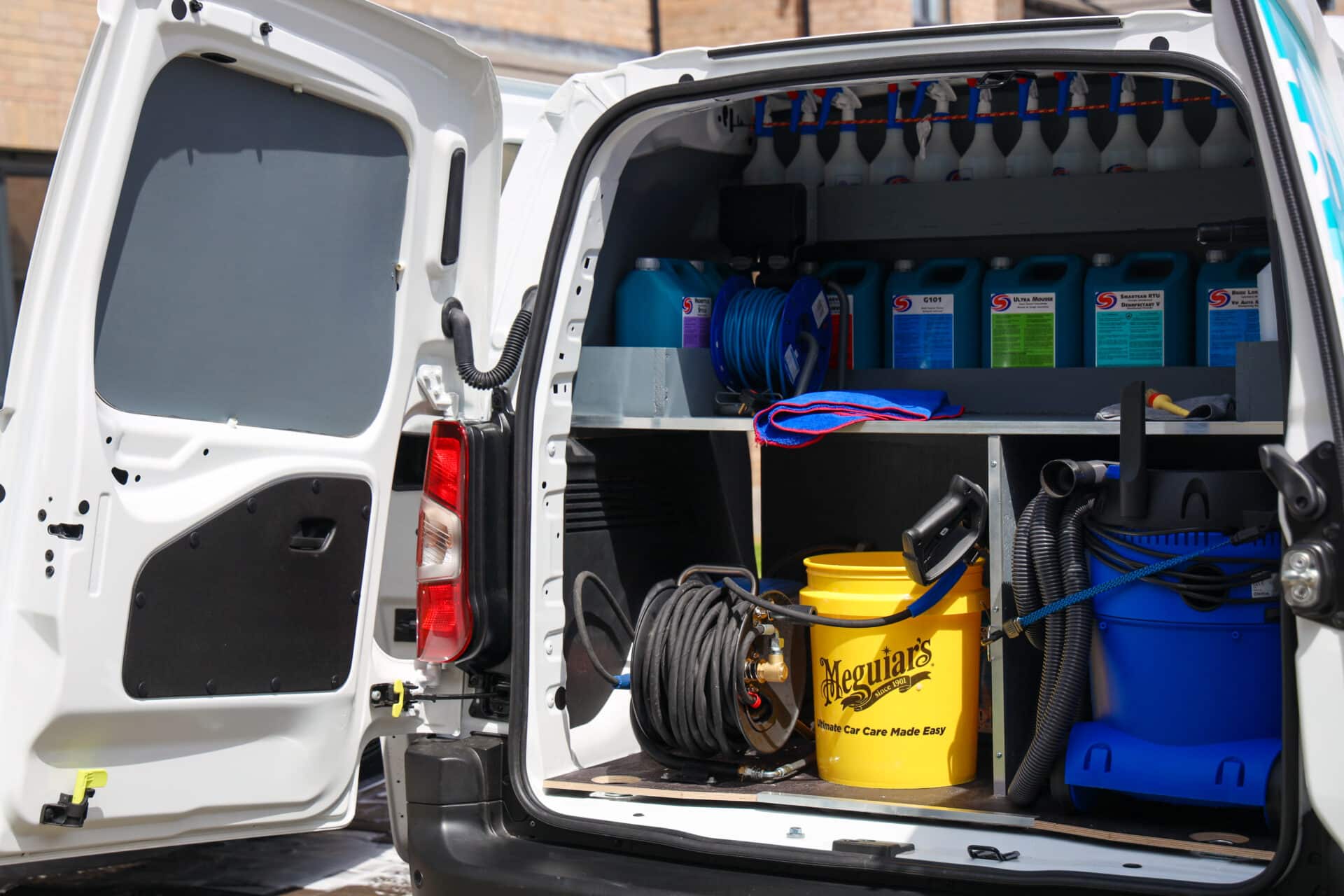Car valeting services have become increasingly popular across the UK, with mobile car valet businesses offering convenient on…
Complete Car Valet Insurance Guide: Essential Coverage for Vehicle Cleaning Services
Introduction
Car valet services face unique risks that standard business insurance may not adequately cover. From handling expensive vehicles to using specialized equipment and chemicals, valet operations require comprehensive insurance protection. This guide explores the essential insurance coverage needed to protect your car valet business from potential claims and financial losses.
Understanding Car Valet Business Risks
Property and Equipment Risks
Car valet businesses rely heavily on specialized equipment including pressure washers, vacuum systems, polishing machines, and chemical storage facilities. Equipment breakdown, theft, or damage can halt operations and result in significant replacement costs.
Vehicle Damage Liability
Working on customer vehicles presents the highest risk exposure for valet services. Accidental damage during cleaning, scratches from equipment, or chemical staining can result in expensive repair claims. High-value vehicles amplify these potential costs significantly.
Public Liability Exposure
Customers and members of the public visiting your premises face slip hazards from wet surfaces, chemical exposure risks, and potential injury from moving equipment. Mobile valet services face additional risks at customer locations.
Employers Liability Concerns
Staff handling chemicals, operating machinery, and working in potentially hazardous conditions require comprehensive employers liability protection. Repetitive strain injuries, chemical burns, and equipment-related accidents are common concerns.
Business Interruption Threats
Equipment failure, premises damage, or regulatory issues can force temporary closure. Lost income during downtime can threaten business survival without adequate protection.
Essential Insurance Coverage Types
Public Liability Insurance
Protects against third-party injury or property damage claims. Minimum £1 million coverage recommended, though £2-5 million may be appropriate for larger operations or those handling high-value vehicles.
Employers Liability Insurance
Legally required for businesses with employees. Covers compensation claims from staff injuries or work-related illness. Standard £10 million coverage typically sufficient.
Professional Indemnity Insurance
Covers claims arising from professional advice or services provided. Important for valet services offering specialist treatments or consultancy on vehicle care.
Product Liability Insurance
Essential protection against claims from defective products or chemicals used in the valet process. Covers customer vehicle damage from faulty cleaning products or equipment.
Commercial Property Insurance
Protects business premises, equipment, and stock against fire, theft, flood, and other perils. Include business interruption coverage to protect against lost income.
Motor Insurance
Comprehensive coverage for any business vehicles, including those used for mobile valet services. Consider goods in transit coverage for equipment transportation.
Cyber Liability Insurance
Increasingly important as valet businesses digitize operations. Protects against data breaches, cyber attacks, and regulatory fines under GDPR.
Specialist Considerations for Car Valet Services
Chemical Storage and Handling
Proper storage and handling of cleaning chemicals is crucial. Insurance policies should cover environmental liability and pollution risks. Ensure compliance with COSHH regulations.
High-Value Vehicle Coverage
Standard public liability limits may be insufficient for luxury or classic vehicles. Consider higher coverage limits or specialist high-value vehicle protection.
Mobile Valet Operations
Mobile services face additional risks including transit coverage for equipment, public liability at various locations, and potential vehicle breakdown coverage.
Seasonal Variations
Many valet services experience seasonal demand fluctuations. Ensure insurance coverage remains adequate during peak periods while avoiding over-insurance during quieter months.
Key Policy Features to Consider
Automatic Reinstatement
Ensures coverage limits are restored after a claim, maintaining protection throughout the policy period.
Legal Expenses Coverage
Provides access to legal representation for employment disputes, contract disagreements, and regulatory investigations.
Business Interruption Extensions
Consider coverage for suppliers, customers, and utilities to protect against indirect business interruption losses.
Equipment Breakdown Cover
Specialized coverage for mechanical and electrical equipment breakdown, including refrigeration units and computer systems.
Contract Works Insurance
Important for valet services operating from leased premises or undertaking installation work.
Choosing the Right Insurance Provider
Industry Experience
Select insurers with specific experience in automotive or cleaning service sectors. They better understand unique risks and coverage requirements.
Claims Handling Reputation
Research insurer claims handling procedures and customer satisfaction ratings. Fast, fair claims settlement is crucial for business continuity.
Risk Management Support
Many insurers offer risk assessment services, health and safety guidance, and loss prevention advice. These services can help reduce premiums and improve safety.
Policy Flexibility
Look for policies that can adapt to business growth, seasonal variations, and changing risk profiles without significant administrative burden.
Cost Factors and Premium Considerations
Business Size and Turnover
Larger operations typically face higher premiums due to increased exposure, but may benefit from economies of scale.
Location and Premises
Urban locations may face higher theft risks, while rural areas might have limited emergency services. Premises security and construction affect premiums.
Claims History
Previous claims significantly impact premium calculations. Maintaining good claims records through effective risk management reduces costs.
Coverage Limits and Deductibles
Higher deductibles reduce premiums but increase out-of-pocket costs for claims. Balance affordability with adequate protection.
Risk Management Measures
Security systems, staff training, safety procedures, and equipment maintenance can qualify for premium discounts.
Risk Management Best Practices
Staff Training and Certification
Comprehensive training in chemical handling, equipment operation, and customer service reduces accident risks and potential claims.
Equipment Maintenance
Regular servicing and maintenance of pressure washers, vacuum systems, and other equipment prevents breakdowns and safety hazards.
Chemical Storage Compliance
Proper storage, labeling, and handling procedures for cleaning chemicals ensure regulatory compliance and reduce environmental risks.
Customer Vehicle Inspection
Document vehicle condition before and after service to protect against false damage claims. Use digital photography and customer sign-off procedures.
Health and Safety Procedures
Implement comprehensive health and safety policies covering slip hazards, chemical exposure, equipment operation, and emergency procedures.
Regulatory Compliance Requirements
Environmental Regulations
Ensure compliance with waste water disposal regulations, chemical storage requirements, and environmental protection legislation.
Health and Safety Obligations
Meet COSHH requirements for chemical handling, provide appropriate personal protective equipment, and maintain safe working conditions.
Data Protection Compliance
Customer data handling must comply with GDPR requirements. Implement appropriate data security measures and privacy policies.
Planning Permission
Ensure appropriate planning permission for business premises and operations, particularly for mobile services operating from residential areas.
Common Policy Exclusions and Limitations
Wear and Tear
Standard policies typically exclude gradual deterioration or wear and tear of equipment or premises.
Intentional Damage
Deliberate acts by employees or third parties are usually excluded from standard coverage.
War and Terrorism
Most policies exclude war, terrorism, and nuclear risks unless specifically included.
Pollution Liability
Environmental pollution may be excluded unless specialist coverage is arranged.
Cyber Risks
Traditional policies may not cover cyber liability without specific endorsements or separate policies.
Claims Process and Procedures
Immediate Response
Contact insurers immediately after any incident. Prompt notification is typically a policy requirement and delays can affect coverage.
Documentation Requirements
Maintain detailed records of incidents, including photographs, witness statements, and police reports where applicable.
Cooperation Obligations
Policy holders must cooperate fully with insurer investigations and provide all requested information promptly.
Temporary Repairs
Most policies allow temporary repairs to prevent further damage, but permanent repairs typically require insurer approval.
Business Continuity
Implement business continuity plans to minimize disruption during claims settlement periods.
Future Considerations and Trends
Electric Vehicle Servicing
Growing electric vehicle adoption may require specialist knowledge and equipment, potentially affecting insurance requirements.
Environmental Sustainability
Increasing focus on eco-friendly cleaning products and water conservation may influence coverage needs and regulatory requirements.
Technology Integration
Digital booking systems, payment processing, and customer management tools increase cyber risk exposure requiring appropriate coverage.
Regulatory Changes
Stay informed about changing environmental, health and safety, and data protection regulations that may affect insurance requirements.
Conclusion
Comprehensive insurance protection is essential for car valet businesses facing diverse risks from property damage to public liability claims. The right insurance package should include public liability, employers liability, professional indemnity, and property coverage tailored to your specific operations.
Regular policy reviews ensure coverage remains adequate as your business grows and evolves. Working with experienced insurance professionals who understand the automotive service sector helps identify appropriate coverage levels and risk management strategies.
Effective risk management, combined with comprehensive insurance protection, provides the foundation for a successful and sustainable car valet business. Investment in proper coverage protects not only against financial losses but also supports business reputation and customer confidence.
Contact Insure24 at 0330 127 2333 to discuss your car valet insurance requirements and obtain a tailored quotation for your business needs.


 0330 127 2333
0330 127 2333
